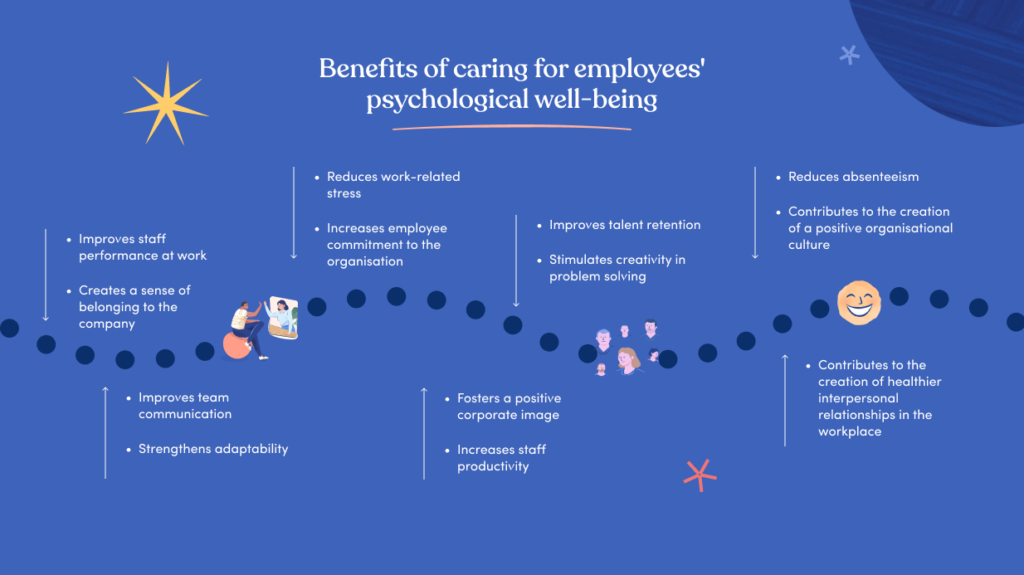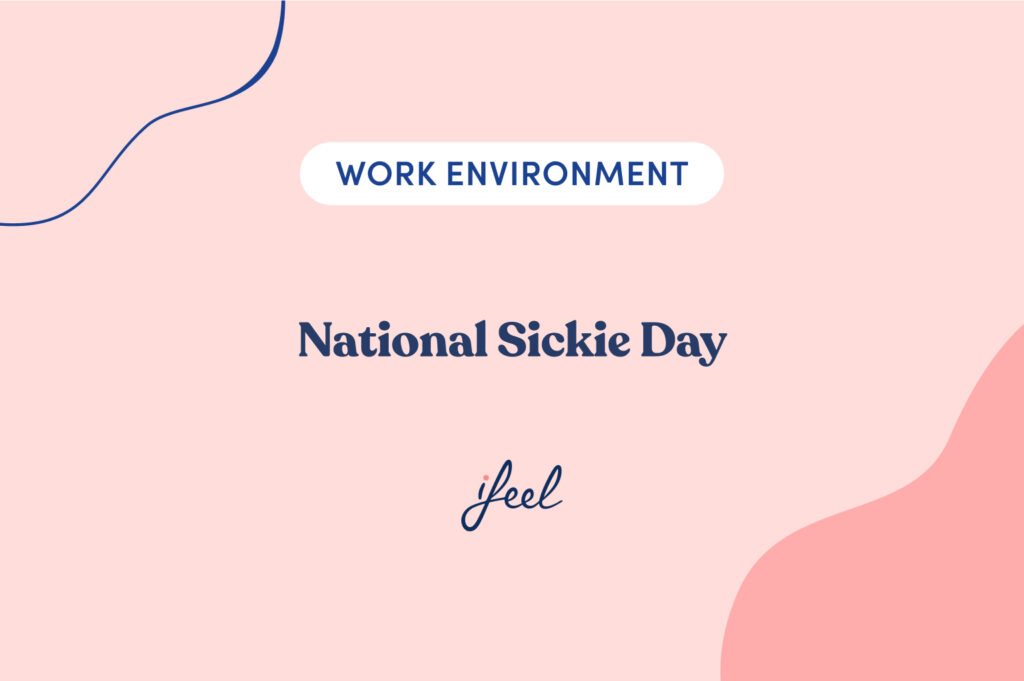National Sickie Day, takes place on the first Monday of February in the UK, and is a significant indicator of absenteeism trends within organisations. This day is marked by a noticeable increase in the number of employees calling in sick, often attributed to factors such as post-holiday fatigue, winter illnesses, and financial stress from the holiday season. National Sickie Day highlights the broader issue of absenteeism, which affects productivity, team dynamics, and organisational costs. Understanding and addressing the root causes of absenteeism can help businesses develop effective strategies to manage and reduce its impact.
The impact of absenteeism on National Sickie Day
As highlighted by National Sickie Day, absenteeism extends beyond a temporary loss of productivity. It can disrupt team cohesion, place additional burdens on present employees, and create workflow gaps that affect service quality and efficiency. Over time, unchecked absenteeism can increase operational costs and weaken organisational culture. Studies show that the country’s sickness absence rate stands at 3.4%5 (the highest since 2004), which now costs the economy over £100 billion annually.
Recognising the dual impact of physical and mental health on absenteeism is crucial in crafting effective strategies that foster a supportive work environment, especially emphasised on National Sickie Day.

Prevention: Strategies to combat absenteeism on National Sickie Day
To effectively combat absenteeism, particularly highlighted by National Sickie Day, organisations must adopt proactive strategies that focus on prevention and support. Here are comprehensive measures to consider:
1. Promote physical and mental health:
- Well-being programs: Develop initiatives supporting holistic health, such as yoga classes, fitness challenges, and stress management workshops, which are crucial for reducing absenteeism on National Sickie Day.
- Mental health resources: Provide access to counselling services, mental health days, and regular workshops focused on mindfulness and resilience-building.
2. Flexible working arrangements:
- Remote work options: Offer remote work possibilities and flexible hours to help employees manage personal responsibilities and reduce stress, addressing a key concern on National Sickie Day.
- Encourage work-life balance: Implement policies that promote personal time management and family support, helping prevent stress-related absences.
3. Engage and support employees:
- Regular check-ins: Establish consistent one-on-one meetings to discuss workload, well-being, and any employee concerns, which can help mitigate issues highlighted on National Sickie Day.
- Recognition programs: Implement initiatives to recognise and reward outstanding performance and contributions, boosting morale and reducing mental fatigue.
4. Foster a supportive environment:
- Employee Assistance Programmes (EAPs): Ensure comprehensive EAPs are available, covering a wide range of support services from counselling to financial advice.
- Peer support networks: Encourage the formation of peer support groups to create a sense of community and mutual support among employees.
5. Monitor and address patterns:
- Data-driven analysis: Use analytics to identify absenteeism patterns and analyse root cause, addressing systemic issues such as high-stress roles or inadequate resources. This is particularly effective for understanding trends observed on National Sickie Day.
Absenteeism and mental well-being on National Sickie Day
Understanding the link between mental well-being and absenteeism, especially on National Sickie Day, is crucial. Employees experiencing stress, burnout, or mental health issues are more likely to take unscheduled leave. Addressing this connection requires:
- Creating an open dialogue: Encourage discussions about mental health in the workplace to reduce stigma and promote understanding, crucial for tackling absenteeism on National Sickie Day.
- Providing adequate support: Ensure that employees have access to mental health resources and feel supported by their peers and supervisors.
- Encouraging self-care: Promote practices of self-care and resilience among employees, helping them manage stress before it leads to burnout or absenteeism.
Common causes of absenteeism and solutions
Understanding the root causes of absenteeism and implementing targeted solutions is essential, especially on days like National Sickie Day, when absences peak. By addressing physical and mental health challenges, organisations can foster a more resilient and engaged workforce. The following table outlines common causes of absenteeism and practical strategies to mitigate them:
| Cause | Solution |
|---|---|
| Physical illness | Offer health checks, flexible sick leave, and encourage preventive measures like vaccinations, addressing peak times like National Sickie Day. |
| Mental health challenges | Provide mental health days, counselling services, and regular mindfulness workshops. |
| Family and personal responsibilities | Implement family-friendly policies, including parental leave and flexible scheduling. |
| Low engagement | Increase engagement through recognition programs, career development opportunities, and team-building activities. |
| Unfavourable workplace environment | Improve conditions with ergonomic assessments and open communication channels. |
Comprehensive checklist for reducing absenteeism on National Sickie Day
To enhance strategies for reducing absenteeism, particularly around National Sickie Day, organisations can use the following detailed checklist:
| Initiative | Status | Action steps |
|---|---|---|
| Implement holistic well-being Programs | [ ] | Design programs integrating physical and mental health activities. |
| Offer flexible work arrangements | [ ] | Evaluate and adapt policies to support work-life balance. |
| Conduct regular employee angagement surveys | [ ] | Use feedback to refine engagement strategies. |
| Ensure access to comprehensive EAPs | [ ] | Partner with providers to cover diverse needs. |
| Establish peer support networks | [ ] | Facilitate group formation and provide guidelines. |
| Monitor absenteeism trends with analytics | [ ] | Regularly review data and adjust strategies accordingly. |
| Recognise and reward employee contributions | [ ] | Develop criteria for recognition and implement awards. |
The Leadership Lens🔎
Leaders have a pivotal role in shaping a workplace culture that prioritises well-being and reduces absenteeism, particularly on National Sickie Day. Key actions include:
Celebrating successes: Regularly acknowledge and celebrate team and individual achievements, fostering a positive and motivated work environment.
Leading by example: Participate in wellness programs and model healthy work habits.
Facilitating open communication: Create an atmosphere where employees feel comfortable discussing their challenges and seeking help without fear of repercussion.
Trust the leader in mental well-being
By understanding and addressing absenteeism, particularly as highlighted by National Sickie Day, organisations can create a healthier and more sustainable work environment. Developing comprehensive strategies that encompass physical and mental well-being reduces absenteeism and strengthens the overall organisational culture. Prioritising employee health and engagement is key to building a resilient, motivated workforce that thrives in a supportive setting.
To assist in this process, our team of psychologists specialising in mental well-being has developed a mental well-being program for companies aimed at helping companies enhance employee engagement and boost productivity.
This collaboration allows HR managers to receive personalised, data-based advice on the most effective measures for detecting employee mental health issues and assessing the workplace climate. It’s the best way to understand their needs.
Moreover, ifeel’s corporate mental well-being solution offers employees a structured mental health care service tailored to their needs at any given time.
We hope you found this article on National Sickie Day interesting. If you want more information about our mental well-being solution for companies, simply request it, and we will contact your team soon.











